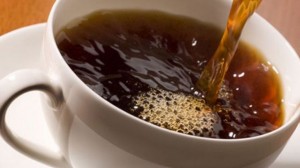What is the ideal water for brewing coffee?
by Gene Franks
British scientist Christopher Hendon recently published research seeking to define the perfect water for brewing coffee. Essentially what he recommends, from the point of view of water quality, is
1. Clear,fresh, odor-free water.
2. Zero or near zero chlorine or chloramine.
3. TDS (Total Dissolved Solids) around 150 ppm.
4. Total alkalinity of around 40 ppm.
5. Calcium hardness of around 4 grains per gallon (68 ppm).
6. pH of 7.0.
7. Sodium of around 10 ppm.
The best way to get water that fits this description is simply to have non-chlorinated well water that fits this description. The second best way is to have city water that fits the the requirements except #2 and filter out the chlorine or chloramine with carbon filtration.
Most standard water treatment strategies have their shortcomings if your entire purpose in treatment is to make excellent coffee. Here is a rundown:
A. Polyphosphate is often used by restaurants. It protects the coffee-making equipment from calcium build-up and does not affect the taste of the coffee. Some cartridges mix polyphosphate with granular carbon. This has the positive effect of removing the chlorine/chloramine. It does not affect mineral content.
B. Distiller. Not good for coffee. It takes out virtually all the hardness and sodium and leaves almost zero TDS. It will probably remove most of the chlorine.
C. Reverse Osmosis. Not ideal for coffee. RO leaves less than 10% of the sodium/hardness content, which is too little unless you start with a whole lot. For example if your raw water has a salty 100 ppm of sodium, RO would bring it down to the ideal figure. RO (or the carbon filters with it) removes chlorine/chloramine, but it probably will drop the pH below the ideal 7.0.
D. Water Softener. Not good for coffee. Softened water has no hardness and way too much sodium. Softeners don’t remove chlorine.
E. Activated carbon filter. Probably the best choice with most waters. It removes chlorine and chloramine, improves taste, and doesn’t affect minerals.
F. Bottled water. Good if you find water that meets the criteria. Bottled water can be distilled, prepared with reverse osmosis, or simply filtered spring or municipal water. Because of the mineral content, filtered municipal water is probably your best choice.
Keep in mind that most people do a lot more with water than make coffee. Perfect water for coffee may not be the best for bathing or drinking. It might make more sense to soften your water to protect appliances and buy a bottle of water now and then to make coffee with. “What profiteth a man if he gains good coffee but loses his hot water heater?”
Reference: Water Technology, paper issue for Sept. 2014.





